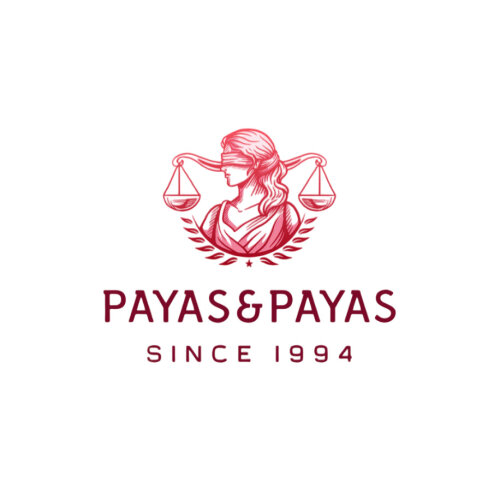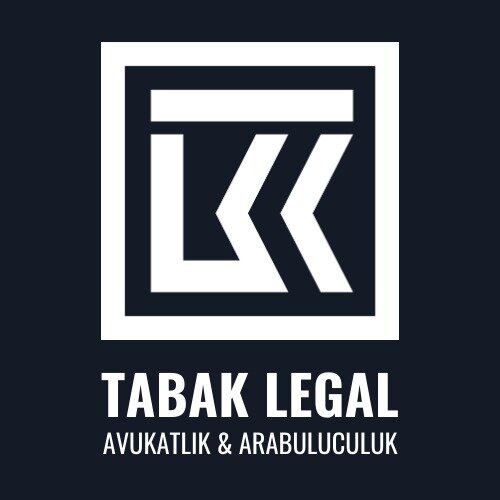Best Employment Rights Lawyers in Turkey
Share your needs with us, get contacted by law firms.
Free. Takes 2 min.
Or refine your search by selecting a city:
List of the best lawyers in Turkey
Turkey Employment Rights Legal Articles
Browse our 1 legal article about Employment Rights in Turkey written by expert lawyers.
- Workplace Accidents in Turkey: Protecting Your Business and Your Employees
- Turkey has one of the highest rates of workplace accidents globally, with nearly 2,000 work-related fatalities reported in 2024 alone. Workplace safety is not just a legal obligation; it's a critical factor in the success and sustainability of your business. As a business owner, understanding the legal framework, financial implications,... Read more →
About Employment Rights Law in Turkey
Employment rights in Turkey are primarily governed by the Labor Law No. 4857, which seeks to protect workers and ensure fair treatment in the workplace. The law covers many aspects, including working hours, overtime, wages, termination, safety conditions, and other labor standards. The Turkish Constitution also upholds certain fundamental rights, such as the right to unionize and collective bargaining, reinforcing the labor rights in Turkey.
Why You May Need a Lawyer
There are several scenarios where seeking legal counsel in employment rights may become necessary:
- Unfair Dismissal: If you've been terminated without just cause or proper notice, you may need legal assistance to claim compensation or reinstatement.
- Discrimination: If you've experienced discrimination based on gender, age, ethnicity, or disability, a lawyer can help you file a complaint and pursue justice.
- Wage Disputes: If there's a dispute over your salary, unpaid overtime, or benefits, a lawyer can help navigate negotiations or litigation.
- Contract Issues: Legal counsel can be crucial in understanding your rights in employment contracts, especially regarding non-compete clauses and confidentiality agreements.
- Workplace Safety: If your workplace is not compliant with safety standards resulting in injury, a lawyer can assist in claiming compensation.
Local Laws Overview
Key aspects of employment law in Turkey include:
- Working Hours: The standard workweek is 45 hours, distributed equally over the days worked. Overtime is limited and should be compensated.
- Minimum Wage: A legal minimum wage is set and updated regularly, ensuring basic income protection for all workers.
- Termination Protections: Employees with at least six months of service in workplaces with more than 30 workers are protected by job security provisions, requiring just cause for termination.
- Leave Entitlements: Employees are entitled to annual leave, maternity leave, and certain other types of leave under specific circumstances.
- Occupational Health and Safety: Employers must comply with regulations and standards to ensure workplace safety, protected by the Occupational Health and Safety Law No. 6331.
Frequently Asked Questions
1. What is the maximum probation period under Turkish employment law?
The maximum probation period is two months, which can be extended to four months by mutual agreement.
2. Can my employer force me to work overtime?
No, overtime requires voluntary consent from the employee, except in extraordinary circumstances, and must be compensated with additional pay or leave.
3. How is severance pay calculated in Turkey?
Severance pay is calculated based on the employee's length of service, with one month's salary for each year of service being the standard measure.
4. Are non-competition clauses enforceable?
Yes, but they must be reasonable in scope, duration, and geographic area to be enforceable.
5. What should I do if I face discrimination at work?
Document all incidents, report it to your employer if possible, and seek legal advice to understand your rights and next steps.
6. What rights do I have if I am dismissed without cause?
You can file a lawsuit for reinstatement, claim severance compensation, and may also be entitled to compensation for undue termination.
7. Is maternity leave paid in Turkey?
Yes, maternity leave is paid, and the employee is entitled to 16 weeks of leave with reimbursement through social security systems.
8. Can my employer change my place of work without my consent?
Not without your consent unless there is a valid relocation clause in your employment contract.
9. What legal actions can I take if I am not paid my salary?
Notify your employer in writing. If unresolved, you may file a complaint with the Labor Court or the Ministry of Labor and Social Security.
10. How do I report unsafe working conditions?
You can report unsafe conditions to your employer and, if necessary, contact the Ministry of Labor and Social Security for further action.
Additional Resources
Several resources might be helpful for understanding and dealing with employment rights in Turkey, including:
- The Ministry of Labor and Social Security offers guidance and support.
- The Social Security Institution (SSI) can provide information on social security rights and obligations.
- Labor unions in Turkey can offer assistance and advice on collective bargaining and workers' rights.
Next Steps
If you need legal assistance regarding employment rights in Turkey, consider the following steps:
- Gather all relevant documents, such as employment contracts, correspondence, payment records, and any written complaints or responses.
- Consult with a lawyer specializing in employment law to get an assessment of your case.
- Determine the most suitable course of action, whether it's negotiation, mediation, or litigation.
- Stay informed about your rights and proactive in addressing employment issues as they arise.
Lawzana helps you find the best lawyers and law firms in Turkey through a curated and pre-screened list of qualified legal professionals. Our platform offers rankings and detailed profiles of attorneys and law firms, allowing you to compare based on practice areas, including Employment Rights, experience, and client feedback.
Each profile includes a description of the firm's areas of practice, client reviews, team members and partners, year of establishment, spoken languages, office locations, contact information, social media presence, and any published articles or resources. Most firms on our platform speak English and are experienced in both local and international legal matters.
Get a quote from top-rated law firms in Turkey — quickly, securely, and without unnecessary hassle.
Disclaimer:
The information provided on this page is for general informational purposes only and does not constitute legal advice. While we strive to ensure the accuracy and relevance of the content, legal information may change over time, and interpretations of the law can vary. You should always consult with a qualified legal professional for advice specific to your situation.
We disclaim all liability for actions taken or not taken based on the content of this page. If you believe any information is incorrect or outdated, please contact us, and we will review and update it where appropriate.
Browse employment rights law firms by city in Turkey
Refine your search by selecting a city.

















